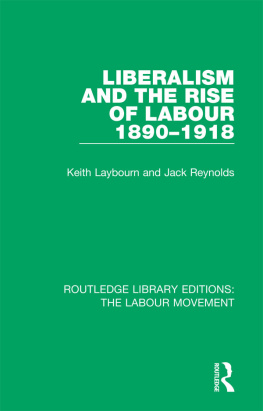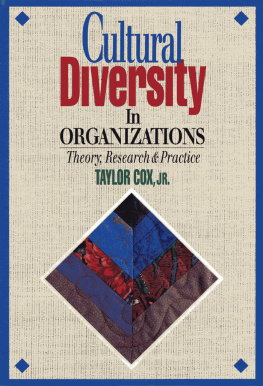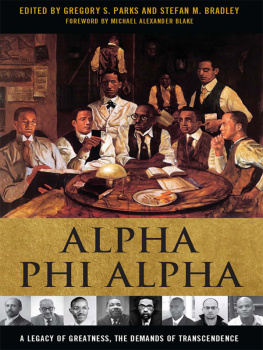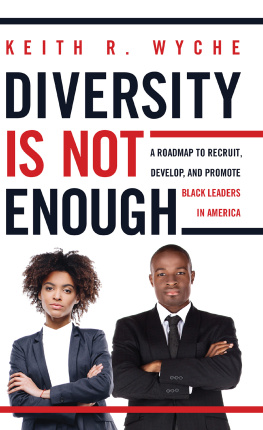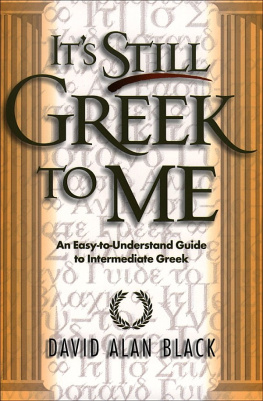
DIVERSITY IN BLACK GREEK-LETTER ORGANIZATIONS
Starting in the early twentieth century and still thriving in the contemporary era, Black Greek-letter organizations (BGLOs) provide support, opportunities, and service for the Black community. Although BGLOs have always been majority-Black organizations, there are small numbers of non-Black individuals who choose to pledge membership. Diversity in Black Greek-Letter Organizations: Breaking the Line explores the experiences of these non-Black members who have immersed themselves in organizations rich with Black history and culture. Through indepth interviews with 34 such members, Wendy Marie Laybourn and Devon R. Goss reveal how and why these individuals come to identify with organizations designed for the uplift of races other than their own. For non-Black BGLO members, the association with a Black organization provides them the opportunity to consider their own racial identities. Although many non-Black BGLO members recount challenges to their membership, the participants in Diversity in Black Greek-Letter Organizations ultimately find a sense of belonging with their Black brothers and sisters, which Laybourn and Goss argue can provide anexample of the challenges and promises of cross-racial interactions as a whole.
Wendy M. Laybourn is a doctoral candidate in Sociology at the University of Maryland. Her research focuses on the relationship between racial ideology, especially as evidenced through popular culture and raced institutions, and racial and ethnic identity. Wendys work has appeared in Ethnic and Racial Studies, Sociology of Race and Ethnicity, Sociology Compass, and the Asian Pacific American Law Journal.
Devon R. Goss is a doctoral candidate in Sociology at the University of Connecticut. Her research examines the color-line, particularly in relation to instances of boundary crossing in typically racialized institutions. Devons work has appeared in Sociology Compass, the Sociology of Race and Ethnicity, and Symbolic Interaction.
In this remarkable study, the authors examine what non-Black BGLO members can tell us about race, symbolic boundaries, cultural investments, systems of racial stratification, and allyship. This book is an accessible, nuanced, and important piece of scholarship.
Robin R. Means Colemanis Professor of Communication and Afroamerican and African Studies at the University of Michigan
How is the difference within Greek-letter organizations navigated? In their book, two up-and-coming sociologists Wendy Laybourn and Devon Goss answer this pressing question with aplomb and perspicacity. Their work promises to take the study of collegiate fraternities and sororities, and Black Greek-letter organizations especially, to new heights.
Gregory S. Parks, J.D., Ph.D.is Associate Dean and Professor, Wake Forest University School of Law
DIVERSITY IN BLACK GREEK-LETTER ORGANIZATIONS
Breaking the Line
Wendy M. Laybourn and Devon R. Goss
First published 2018
by Routledge
711 Third Avenue, New York, NY 10017
and by Routledge
2 Park Square, Milton Park, Abingdon, Oxon OX14 4RN
Routledge is an imprint of the Taylor & Francis Group, an informa business
2018 Taylor & Francis
The right of Wendy M. Laybourn and Devon R. Goss to be identified as authors of this work has been asserted by them in accordance with sections 77 and 78 of the Copyright, Designs and Patents Act 1988.
All rights reserved. No part of this book may be reprinted or reproduced or utilised in any form or by any electronic, mechanical, or other means, now known or hereafter invented, including photocopying and recording, or in any information storage or retrieval system, without permission in writing from the publishers.
Trademark notice: Product or corporate names may be trademarks or registered trademarks, and are used only for identification and explanation without intent to infringe.
Library of Congress Cataloging in Publication Data
A catalog record for this book has been requested
ISBN: 978-1-138-62962-2 (hbk)
ISBN: 978-1-138-62963-9 (pbk)
ISBN: 978-1-315-21035-3 (ebk)
This book is the result of a community of support. Our mentors Matthew W. Hughey and Rashawn Ray provided unflagging encouragement and guidance throughout this project.
We are thankful for the intellectual community of the University of Maryland Department of Sociologys Critical Race Initiative, where we benefited from conversations about our ideas and comments on preliminary analyses and earlier drafts. We are especially grateful for Joey Brown, Jocelyn Coates, Jonathan Cox, Asiah Gayfield, and Kevin Winstead. Many other colleagues were generous in their time in reading and commenting on drafts, and we would like to acknowledge Aisha Upton, Stephen Del Visco, and Amy Baugher for their helpful suggestions.
We also wish to thank the folks at Taylor & Francis, especially Amanda Yee and Dean Birkenkamp, for their help and dedication throughout the process. Thank you to France Winddance Twine for her assistance in the early stages of this book project.
Chapter 3 was adapted from a previously published article, and we thank the journal and its editors for their support. An earlier version of the chapter was published as Youre either one of us or youre not: Racial Hierarchy and Non-Black Members of Black Greek-Letter Organizations, in Sociology of Race and Ethnicity. We are grateful for Sage Publications in allowing us to reprint portions of the article.
Finally, this project would not have been possible without the non-Black members of Black Greek-letter organizations who shared their experiences with us.
In 1946, Ebony magazine featured an article on Bernard Levin, the first white member of Alpha Phi Alpha fraternity (Ebony Magazine 1946a). He pledged the Theta Chapter at the University of Illinois at Chicago in June of that year. As one might expect, pledging Levin was not met without controversy. After all, he was joining the first official Black fraternity. Established in 1906 at Cornell University with the intent to ensure the retention of Black college men and serve as a source of support against racial isolation on campus, Alpha Phi Alpha Fraternity, Incorporated ignited a collegiate movement for racial uplift that continued in the Black fraternities and sororities that followed. Ebony describes how Alpha brothers approached Levins admission from two distinct perspectives: there were those who sought to protect the history and tradition of the brotherhood among the cream of college-bred Negroes; and those who sought to embrace racial diversity (Ebony Magazine 1946b:26). In the end, those advocating for racial diversity prevailed. Levin was pledged, and the first white Alpha member was embraced as a full fraternity brother (Ebony Magazine 1946b:26).
From accounts of the event, it is unclear the extent of the racial repercussions Levin faced from either side of the color-line. The Ebony article simply notes that some of Levins friends viewed with alarm his initiation into a Negro fraternity (




